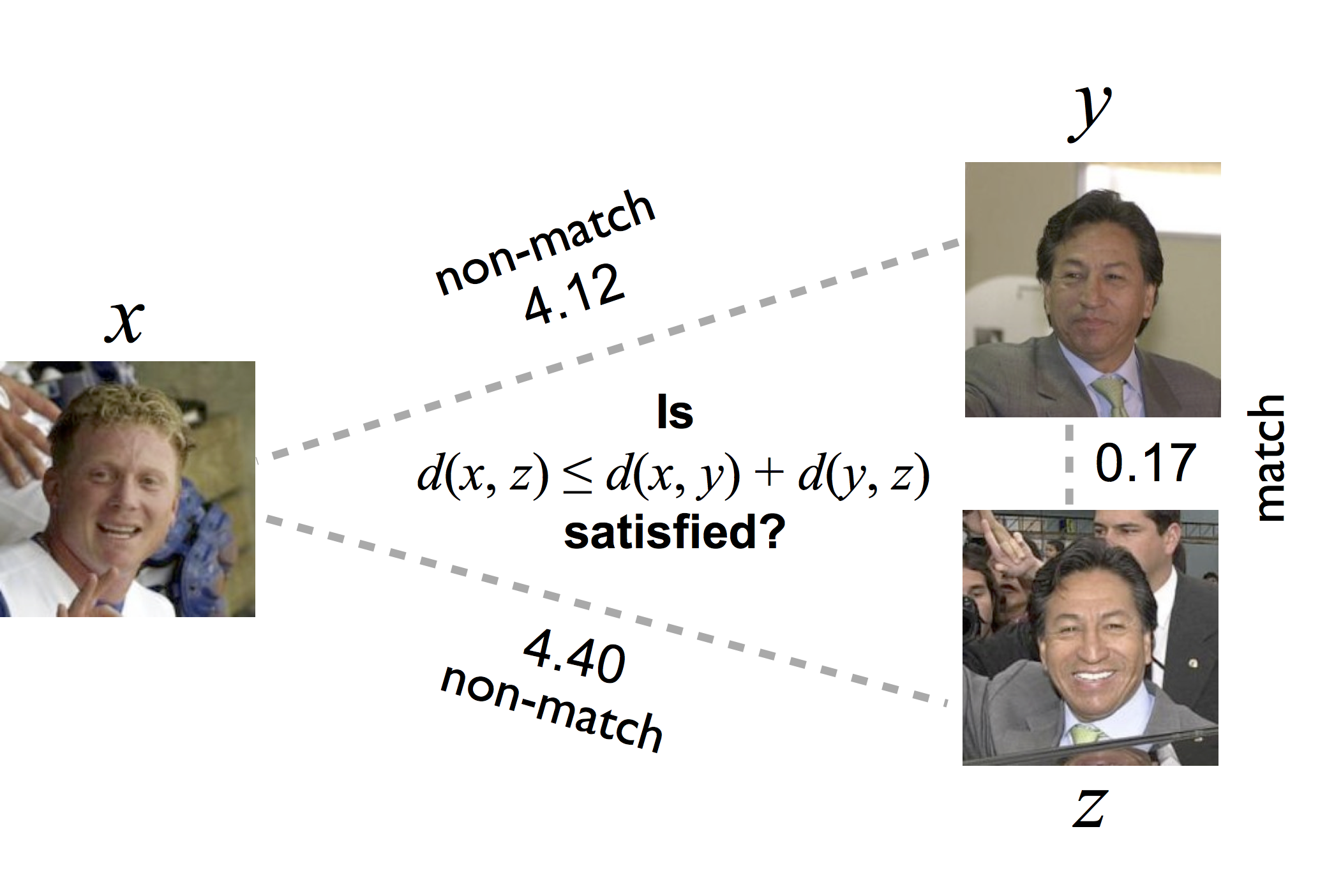Good Recognition is Non-metric
Fall 2012 - Spring 2014
Description
Recognition is the fundamental task of visual cognition, yet how to formalize the Recognition is the fundamental task of visual cognition, yet how to formalize the problem is sometimes reduced to the simplest case of recognizing matching pairs, often structured to allow for metric constraints. However, visual recognition is broader than just pair-matching: what we learn and how we learn it has important implications for effective algorithms. In this work, we reconsider the assumption of recognition as a pair-matching test, and introduce a new formal definition that captures the broader context of the problem. Through a meta-analysis and an experimental assessment of the top algorithms on popular data sets, we gain a sense of how often metric properties are violated by recognition algorithms. By studying these violations, useful insights come to light: we make the case for local distances and systems that leverage outside information to solve the general recognition problem.
Publications
-
"Good Recognition is Non-metric,", , , ,Pattern Recognition,August 2014.
